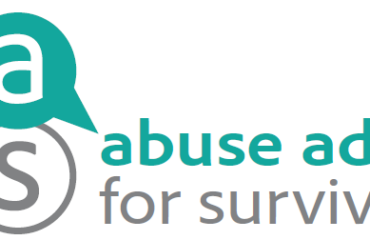
Paedophiles will always look for ways to meet and abuse children. Years ago they would look for employment as teachers, care workers, sports coaches etc. As fast as routes to children are barricaded by safe guarding, sex offenders have to be more inventive. Now the internet is the obvious easier route which is relatively unpoliced, so how should parents help make the path more difficult for them? Will the new Online Safety Act make the situation better?
Freedom from Abuse
I am fortunate enough to be an ambassador of the survivor group Freedom from Abuse under the governance of Marilyn Hawes, who spends her life trying to educate schools, parents, and teachers about how to spot a sex offender, and how to protect your children from internet abuse by paedophiles. She becomes understandably frustrated at firstly the lack of awareness of the dangers, and secondly how trusting parents can be when arming their children with pathways for child sex offenders, otherwise known as mobile phones and the internet.
Marilyn is an ardent, and passionate campaigner on the subject of child safety. This stems from her experience as a teacher working alongside a fellow male teacher who abused her own children right under the noses of everyone. Harsh critics would say that it is easy to spot someone acting “weird” with children, but nothing could be further from the truth. Child sex offenders are usually the most charming, affable, and relaxed members of the community. Their manipulative techniques manage to persuade children to be alone with them long enough to groom, and persuade their innocent victims to engage in sexual acts.
Online Paedophile Methods
Busy, overworked parents are sometimes at their wit’s end. Paedophiles often develope an interest in activities that children also share, eg. football, outdoor pursuits, music, and various hobbies. They join voluntary groups where safeguarding rules are less onerous and strict than professional organisations like schools. They often volunteer to help out with children. The grooming process can sometimes take months, even years, whilst they weedle their way into being alone with the child. The process is often gentle, subtle, flattering, and clever.
Over the years since I started dealing with child abuse cases, safeguarding has improved 100%, so sex offenders have to keep changing their techniques to stay ahead of the law. It is much more difficult now to infiltrate schools,so the internet is a much safer route for them. I often liken it to the process of squeezing a balloon full of water. As routes to children become too risky, the sex offender changes their techniques to suit, and they move elsewhere, such as the Far East or onto the Internet.
Richie Allen Podcast
I was listening to a podcast by Richie Allen which is available on the internet only – see the link below. The presenter is a passionate Irishman with strong opinions. He asks Marilyn about the dangers of the internet. The salient points are:-
- Mobile phones should not be given to young children.
- Before giving a mobile phone to a child, make sure it is properly secured with family security software – Marilyn recommends an app.
- Sex offenders pretend to be children of the same age to lure the child into believing they are finding a friend.
- Scientific experiments have been done to find out how many individuals there are on the internet who are interested in child abuse images. Marilyn mentions figures as high as 850,000 in a short space of time ie there are many predators out there waiting to pounce.
- Although the Online Safety Act has been passed, it does not cover some areas, such as email, texts and other private areas of the Internet protected by encryption.
- Sex offenders try to persuade a child to move from a public area like Facebook, to a private What’s App group, which is protected from the prying eyes of social platform investigators due to it’s encryption.
- There are many other dangerous platforms that children can be lured into which adults are largely ignorant of, and similarly encrypted.
- There are so many dangerous individuals out there on the internet that parents should not only take precautions over children’s physical relationships, but also internet security safety steps
More Sex Offenders Now than Years ago?
The big question is, are there now more paedophiles than there were in the past? Marilyn answers that question in the same way as I always have, ie the difference between now and the past is, thankfully, that we are all now much more aware of the dangers of childhood sexual abuse and that the percentage of child sex offenders in society is the same as it has always been
- Police forces have much more sophisticated “vulnerable adult departments,” which deal with child and adult abuse. They have highly trained officers who use special facilities to interview victims.
- Child abuse is not as much the guilty secret that it once was, so it is nowhere near as shocking to make a disclosure as it was when I started dealing with abuse cases in the 1990’s. Then people found it very hard to believe that abuse was as widespread as it was revealed to be.
- There is a sophisticated Disclosure and Barring Service, something which I and others campaigned hard for and which goes a long way toward preventing child sex offenders from entering professions such as teaching and residential care work
- The tragedy is that adults are now afraid of letting children play outside in the woods for fear of being attacked by stranger paedophiles. Thus children play on computers, and other devices indoors with players online, who are just, if not more, dangerous than the chance of being attacked in the woods. In the process children do not exercise enough and get fat, a problem that did not exist only a few years ago.
To listen to the podcast follow this link – it starts at 24 minutes in and concludes at 1.00 hr in. Worth a listen.
The Freedom from Abuse website is https://freedom-abuse.org/
by Peter Garsden, Solicitor. For help on any aspect of this article, or, indeed, any aspect of abuse cases, please contact us by filling in our form.



